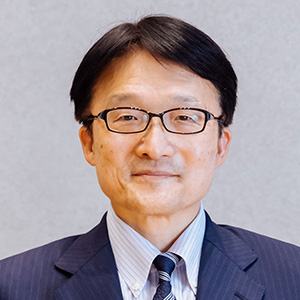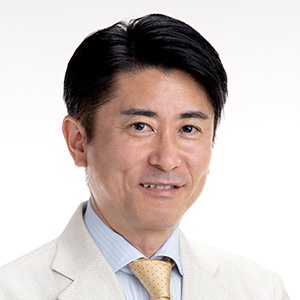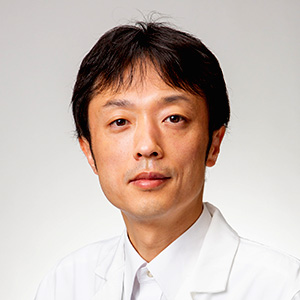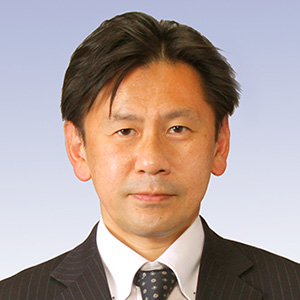46th Sysmex Scientific Seminar: Future Prospects for Cardiovascular Disease Research
46th(2024) Sysmex Scientific Seminar: Future Prospects for Cardiovascular Disease Research
The topic of “Future Prospects for Cardiovascular Disease Research” is extremely important for our healthy lifespan. Heart disease and vascular disorders have become one of the most serious health and medical challenges in modern society. Advances in medical technology associated with cardiovascular disease research hold promise for the future of the field of cardiovascular healthcare.
We will present the latest information from four specialised physicians, providing a real sense of the progress made. The content of the event will be advantageous not only cardiovascular physicians but also for medical technologists. We encourage you to take this opportunity to participate.
Programs & Speakers (All times are in JST)

10:00 - 10:05
Opening Address
Yutaka Yatomi Chairman of Sysmex Scientific Seminar planning committee

10:05 - 10:55
The Future of Cardiovascular Medicine
Issei Komuro, M.D., Ph.D
Vice President, International University of Health and Welfare/ Specially Appointed Professor, Department of Advanced Cardiovascular Medicine, Graduate School of Medicine, The University of Tokyo

10:55 - 11:10
Q & A

11:10 - 12:00
How Can We Prevent Cardiovascular Aging?
Tohru Minamino, M.D., Ph.D
Professor and Chairman, Department of Cardiovascular Biology and Medicine, Juntendo University Graduate School of Medicine

12:00 - 12:15
Q&A

12:15 - 13:35
Break

13:35 - 14:25
Precision Medicine for Primary Dyslipidemias and Atherosclerotic Cardiovascular Diseases
Hayato Tada, M.D., Ph.D
Assistant Professor, Department of Cardiology, Kanazawa University Hospital
14:25 - 14:40
Q & A

14:40 - 14:55
Break

14:55 - 15:45
Addressing Unmet Needs in the Cardiovascular Area by Industry-Academia Collaboration: Establishment of a Novel Method to Assess HDL functionality
Ryuji Toh, M.D., Ph.D
Associate Professor, Division of Evidence-based Laboratory Medicine, Kobe University Graduate School of Medicine

15:45 - 16:00
Q & A

16:00 - 16:05
Closing Address
Kenichi Hirata
Planner of the 46th Sysmex Scientific Seminar
Lecture Abstracts
Lecture 1

Title: The Future of Cardiovascular Medicine
Speaker: Issei Komuro, M.D., Ph.D
Vice President, International University of Health and Welfare/ Specially Appointed Professor, Department of Advanced Cardiovascular Medicine, Graduate School of Medicine, The University of Tokyo
As Japan becomes a super-aged society, the disease structure is changing, and the number of patients with cardiovascular diseases such as heart failure and atrial fibrillation that develop with age is rapidly increasing. In particular, heart failure, the terminal manifestation of all cardiovascular diseases, has become a major problem, with the number of patients and deaths increasing. Although progress has been made in the treatment of heart failure with both pharmacological and non-pharmacological therapies, most therapies are limited to symptomatic treatments such as cardioprotection and cardiac replacement, and molecular targeted therapies based on the pathogenesis of the disease, such as those for cancer, have not been developed. Cardiovascular disease is an “ultra-complex system” in which genetic and environmental factors are intricately intertwined, making it difficult to elucidate the pathogenesis. Heart failure, in particular, is an even more challenging problem because not only do numerous genetic and environmental factors play a role in its pathogenesis, but it is also a dynamic problem that must ultimately be solved through the contraction and relaxation of the heart. However, recent advances in data science have made it possible to analyze the pathogenesis of cardiovascular diseases, including heart failure, with more information than any other disease.
Lecture 2

Title: How can we prevent cardiovascular aging?
Speaker: Tohru Minamino, M.D., Ph.D
Professor and Chairman, Department of Cardiovascular Biology and Medicine, Juntendo University Graduate School of Medicine
The incidence of lifestyle-related diseases increases with age and, as a result, is the underlying pathology for the development of ischemic heart disease and stroke. These diseases, which shorten healthy life expectancy, can be viewed as part of the traits of aging, as they are commonly observed in many elderly people. In other words, the ultimate target for treatment of these diseases may be the mechanisms that regulate life span itself. In this current situation, research on the mechanisms of aging and lifespan has made tremendous progress in the last 20 years. There are many theories on the mechanisms of aging, one of which is the “cellular aging hypothesis”. This hypothesis proposes that aging and metabolic stresses such as overeating cause the accumulation of senescent cells in various tissues, which in turn cause tissue damage and impair tissue regeneration through the secretion of inflammatory molecules, resulting in organ and individual cells aging. In fact, we have shown that the accumulation of senescent cells in blood vessels, heart, and visceral adipose tissue is involved in the onset and progression of atherosclerosis, heart failure, and diabetes, respectively. Furthermore, it has recently been shown that senescent cell removal (senolysis) ameliorates pathological aging traits. In this article, we would like to discuss the possibility of anti-aging therapies targeting senescent cells (seno-antigen, seno-anergy-related molecules).
Lecture 3

Title: Precision medicine for primary dyslipidemias and atherosclerotic cardiovascular diseases
Speaker: Hayato Tada, M.D., Ph.D
Assistant Professor, Department of Cardiology, Kanazawa University Hospital
Arteriosclerotic diseases are a major cause of death not only in Japan but also worldwide, and overcoming them is extremely important. Dyslipidemia, the greatest risk factor for atherosclerotic diseases, is an inherited trait, and genetic research has been conducted for its prevention and treatment. Dyslipidemia is not only a risk factor for atherosclerotic diseases, but also a cause of them. In this lecture, I would like to introduce genomic medicine as medical treatment and research, focusing on familial hypercholesterolemia (FH), the most appropriate and frequent monogenic disease related to this topic. I will also discuss the current efforts towards ultra-precision personalised medicine for similar primary lipid disorders and atherosclerotic disease. Additionally, I will present the current status and future developments of ultra-precise personalised medicine based on genetic polygenic risk scores.
Lecture 4

Title: Addressing Unmet Needs in the Cardiovascular Area by Industry-Academia Collaboration: Establishment of a Novel Method to Assess HDL functionality
Speaker: Ryuji Toh, M.D., Ph.D
Associate Professor, Division of Evidence-based Laboratory Medicine, Kobe University Graduate School of Medicine
In Japan, where the population is aging at a rate unparalleled in the world, the extension of healthy life expectancy is an urgent issue. As a countermeasure against cardiovascular disease, which is a major cause of conditions requiring long-term care, we have been working with Sysmex Corporation to develop a method to evaluate high-density lipoprotein (HDL) function, although hypo-HDL cholesterolemia is one of the residual risks of cardiovascular disease after LDL cholesterol lowering therapy. Recently, it has been suggested that HDL is important not only in quantity but also in quality. However, there is no established method to assess HDL function, which has been a barrier to the development of HDL-targeted prevention and treatment strategies. Therefore, we have proposed the cholesterol uptake capacity (CUC) as a new clinically applicable HDL functional index, and have demonstrated its clinical usefulness. Recently, we have completed a fully automated measurement system with high reproducibility, which enables high-throughput evaluation of CUC and provides an environment in which real-world evidence can be established. At the same time, the company is also working on the development of new biomarker discovery and testing methods, utilizing the know-how cultivated through past industry-academia co-creation. In addition, accurate understanding of the current situation is essential in disease control. We are conducting the KUNIUMI registry on Awaji Island, Hyogo Prefecture, with the aim of understanding the issues involved in the treatment of heart failure in a super-aging society.


![[VOD AVAILABLE] Harmonisation of Discordant Notes in the Extended Lipid Panel including Lipoproteins, Apoproteins and Cardiac Markers](https://www.sysmex-ap.com/wp-content/uploads/2024/01/29135-e1705552615518-825x510.jpg)

![[VOD AVAILABLE] “Minds Together” Sysmex Knowledge Congregation – Utility of Mono-score in Infections & QMS in Medical Diagnostics Laboratories](https://www.sysmex-ap.com/wp-content/uploads/2024/01/dreamstime_l_9619043_RF-825x510.jpg)
![[VOD AVAILABLE] Experience in the Workflow and Evaluation of Invasive Breast Carcinoma](https://www.sysmex-ap.com/wp-content/uploads/2023/11/Picture1-1-e1704264341456-825x510.jpg)